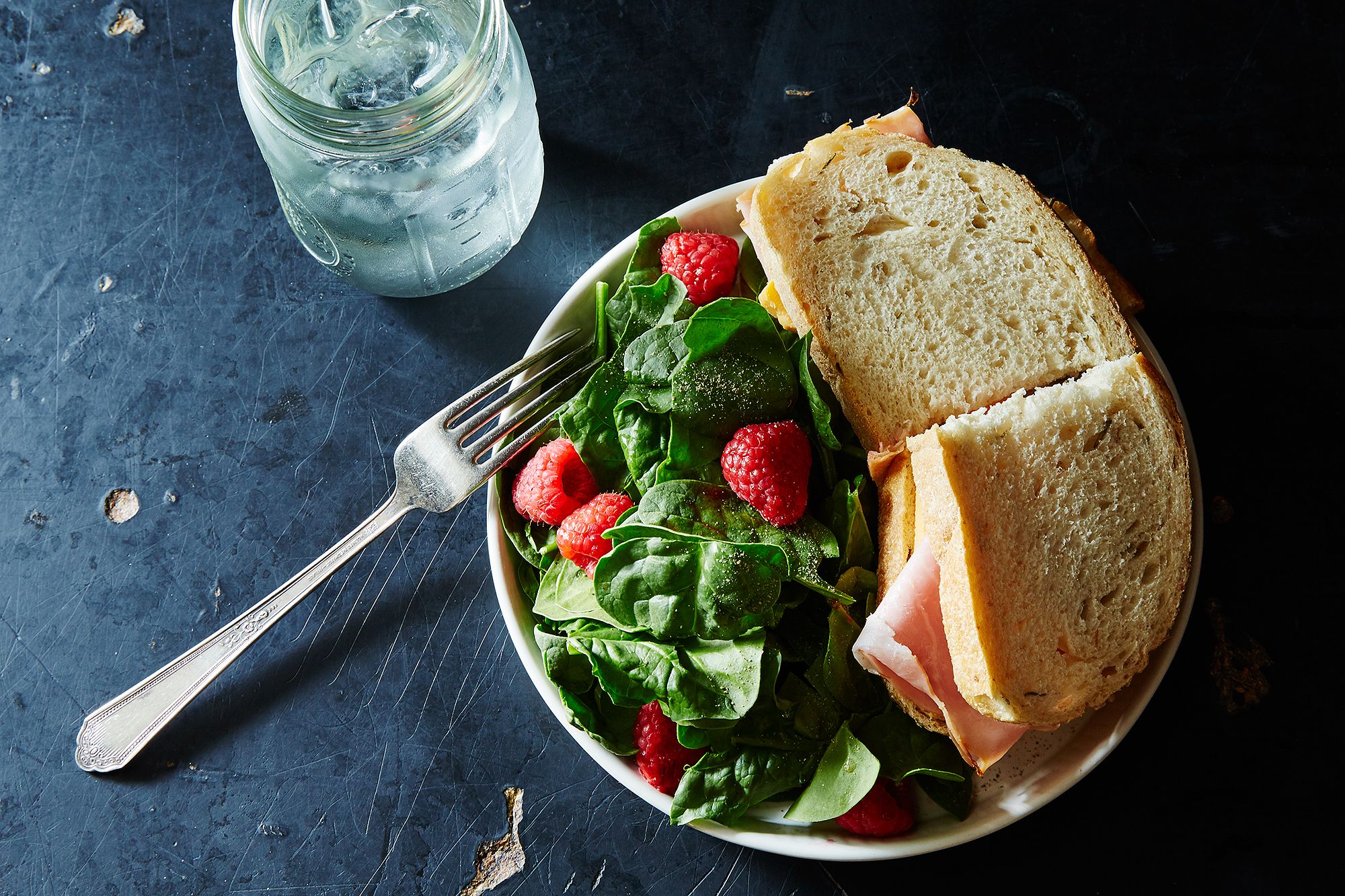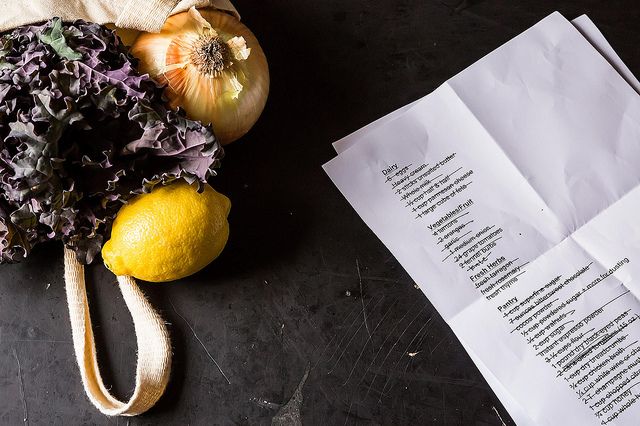Food52's editorial intern shares her tips for making lunch—on a New York City post-grad budget.

Taylor's lunch last week: A simple meat and cheese sandwich with a raspberry-dotted spinach salad.
Getting the email that you that you've just landed your dream internship is an amazing feeling. Then, after a few minutes of ecstatic joy, it sinks in: You are an intern. In New York City. How will you afford to buy food—and still have money to eat out? As thousands of other interns know, you get creative. Eating inexpensively does not, as I've discovered, mean you have to eat poorly.
And considering I'd be interning at a food blog, I knew the classic college lunch of instant noodles and a banana just wasn't going to cut it. I decided to keep it simple, and only buy healthy, delicious, and filling items I knew I would eat within the work week. Here are five ways to eat well in the office, while still saving enough to buy the occasional Saturday brunch:
1. Make a weekly grocery budget and stick to it.

My motto is simple: Buy fresh and buy healthy. My first week on the job, my groceries set me back only $27. You might not realize it, but all that junk food that got you went through during finals week in college was actually really expensive. Plus, your parents will be thrilled, because you're finally eating all those vegetables you used to push around your plate. If you’re really craving something, like the last raspberries of the season or the watermelon chunks by the checkout counter, plan ahead! Find a way to work it into your next week’s meals by making a big salad, or by eating it for breakfast with some yogurt and a pinch of granola.
2. Buy or make things you can eat several times a week.

A loaf of bread, sandwich fixings, and the ingredients for a week's worth of leafy salads will only set you back about $15.00. Plus, you have a lot of options when it comes to a sandwich and a salad. If your bread is a little hard towards the end of the week, you can make a grilled cheese. Or, make quick croutons for the next-day's salad. Some produce won’t last all week in the crisper or on the counter, so be sure to account for that. If you’re buying bananas for your breakfast, be sure to get a few ripe and non-ripe so you aren't stuck with mushy fruit by friday. Have extra ham when your sandwich bread runs out? Try making this quick and easy dish that’s refreshing, and will help use up the rest of the melon in your container. Find ways to give root vegetables lots of love. Try potato chips on your salad, or roast a few in the oven with fresh rosemary and olive oil. They are inexpensive and delicious, and keep in your tiny kitchen forever.
3. Become best friends with soups, stews, and chilies.

These one-pot wonders are lunch-time saviors. My particular favorite is a spicy carrot, ginger, and squash concoction that requires no meat, but I’ll let you in on a little pro tip: If you aren’t vegetarian or vegan, there’s usually one day a week that major grocery stores put meat on sale. It can change depending on the month, but try to scope it out so that the chicken in your noodle soup doesn’t break the bank. Too hot out for a hot meal? Throw a bunch of greens and things in a bowl, with your favorite grains, meats, and fruits. It's a step above a leafy salad, but it won't heat up the kitchen.
4. Don't feel the need to cut out coffee (heaven forbid!).

But do get smart about how you make it. Whether using a French press, pour-over, or instant, buy in bulk so you can start your morning caffeinated—without the steep cost of your venti-iced-something. The same goes for drinks at lunch. Think of this as the perfect time to finally follow through on that New Year’s resolution to stop drinking soda and just drink water from the tap (It's free and delicious!). If that logic doesn't work, consider this: A drink with every lunch will run you around $10 by the end of the week, which is one less delicious brew for you when you’re out with friends over the weekend.
5. Buy the rosemary sourdough.

Which is to say, make tasteful splurges (pun intended). By saving money during the weekday, you can spend what you normally would on a café-bought lunch and four or five cups of coffee on a dinner out, a food festival, a new cookbook, or whatever else you might crave during the week. By prioritizing your grocery list, you can have enough for that decadent ingredient for your Saturday night dinner. For me, this also means the rosemary sourdough from my favorite bakery down the street. It makes my sandwiches taste better and my week that much more enjoyable—if it is an extra $1.50!
What are your tips for eating inexpensively and happily? Tell us in the comments below!







See what other Food52 readers are saying.